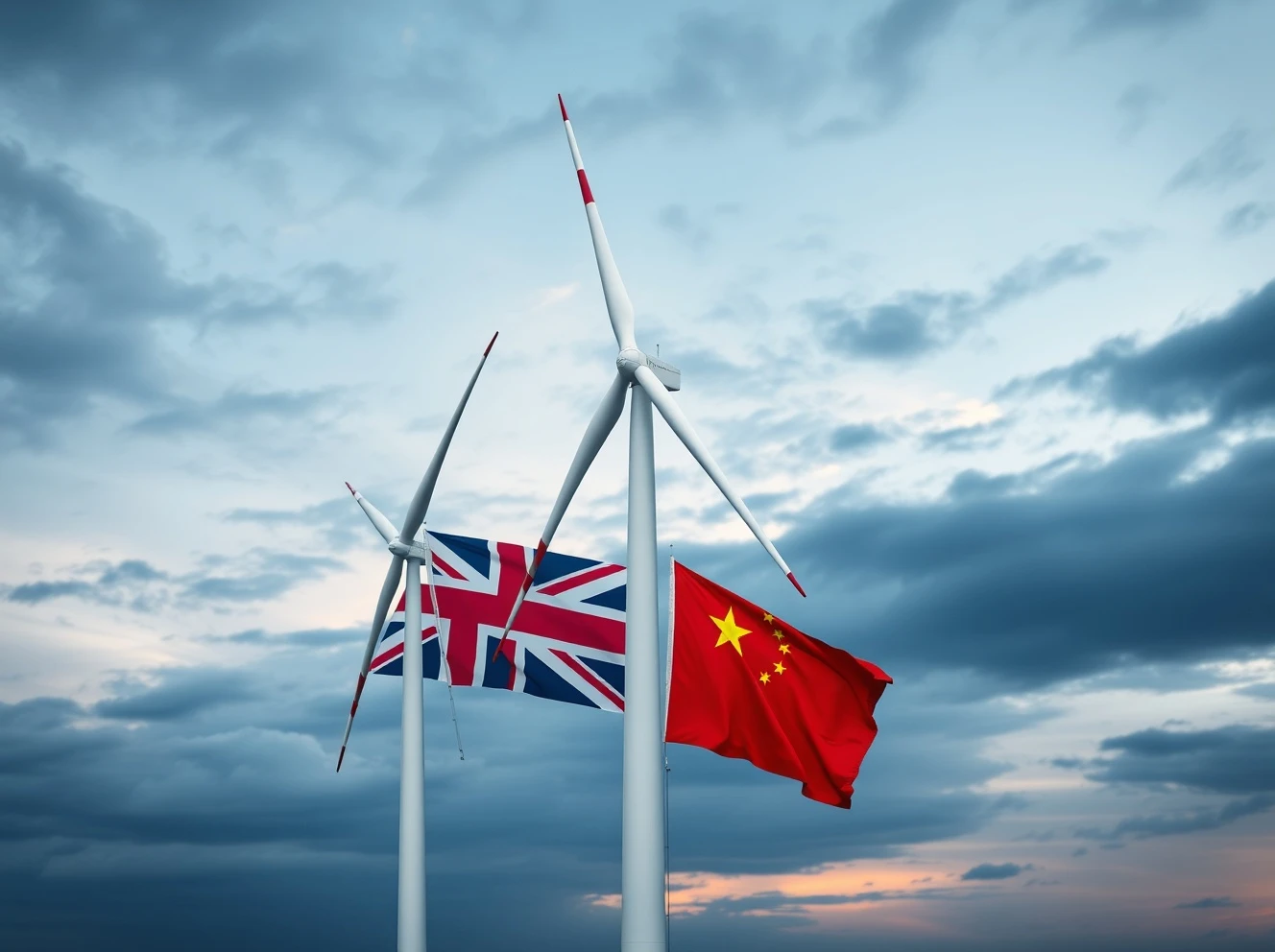Octopus Energy’s groundbreaking partnership with Chinese wind turbine manufacturer Ming Yang Smart Energy has ignited fierce national security debates across the UK energy sector. This controversial Chinese turbine deal represents a pivotal moment for Britain’s renewable energy future.
Understanding the Chinese Turbine Deal Controversy
The agreement between Octopus Energy and Ming Yang Smart Energy aims to develop up to 6 gigawatts of wind capacity. This Chinese turbine deal marks potentially the first deployment of Chinese-built turbines in UK waters. Conservative MPs immediately raised alarms about strategic vulnerabilities.
National Security Implications
Critics argue this Chinese turbine deal could expose critical infrastructure to foreign influence. Shadow energy minister Nick Timothy called the move “reckless and an unacceptable risk.” The concern centers around potential Beijing influence over UK power generation capabilities.
Ming Yang’s Previous UK Involvement
Ming Yang, the world’s third-largest turbine manufacturer, previously courted controversy in Britain. The company signed a 2021 memorandum to build a blade-manufacturing plant in Scotland. This Chinese turbine deal follows similar patterns of Chinese investment scrutiny.
Security Safeguards and Government Oversight
Octopus Energy committed to addressing security concerns through specific measures:
- Pairing Ming Yang hardware with UK-developed software
- Implementing advanced cybersecurity protocols
- Ensuring highest levels of data protection
Ministers retain blocking power under the National Security and Investment Act.
Balancing Climate Goals and Security
The Chinese turbine deal emerges as Britain accelerates grid decarbonization. Officials must balance climate target urgency with growing geopolitical tensions. This Chinese turbine deal tests UK energy security policies significantly.
Industry Impact and Western Alternatives
This Chinese turbine deal could diversify supply beyond established Western manufacturers. Companies like Vestas, Siemens Gamesa, and GE currently dominate the market. The outcome will shape future UK renewable energy partnerships.
Frequently Asked Questions
What is the Octopus Energy Ming Yang deal?
The agreement involves developing up to 6 gigawatts of wind capacity using Chinese-built turbines, potentially the first such deployment in the UK.
Why are there national security concerns?
Critics worry Chinese technology in the UK grid could create strategic vulnerabilities and potential foreign influence over power generation.
Can the government block this deal?
Yes, ministers retain blocking power under the National Security and Investment Act, with all Chinese energy investments subject to rigorous review.
What safeguards has Octopus proposed?
The company plans to pair Chinese hardware with UK-developed software and implement advanced cybersecurity measures and data protection protocols.
How does this affect UK climate goals?
The deal tests how Britain balances urgent decarbonization targets with growing geopolitical concerns about foreign investment in critical infrastructure.
What are the potential economic impacts?
Successful implementation could lower energy costs and accelerate renewable adoption, while security concerns might delay projects and increase scrutiny on foreign partnerships.






